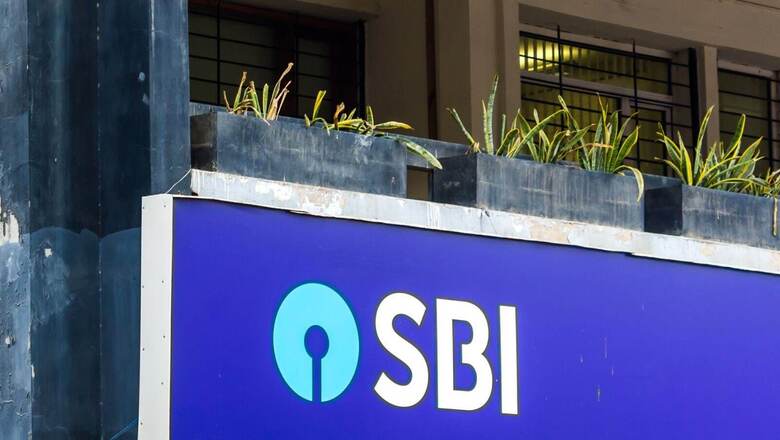
views
The State Bank of India recently announced the launching of the Electronic Bank Guarantee (e-BG) facility. This is not the first time a paperless bank guarantee facility is announced by a bank. Last year, HDFC Bank became the first bank in the country to issue an e-BG in partnership with National E-Governance Services Limited (NeSL).
As the name suggests, this is an electronic version of the bank guarantees that exist in our financial ecosystem.
Bank guarantees are very common when it comes to utilisation by business entities.
What is a bank guarantee (BG)?
The bank guarantee is a commitment made by the issuing bank to make payment to the beneficiary (albeit at the behest of the bank’s constituent).
In simple terms, it is a promise by a bank or any other financial institution that if a borrower fails to pay a loan, then the bank or the financial institution will take care of the losses.
The original creditor has an assurance from the bank through the bank guarantee.
As per BankBazaar, a bank guarantee is a contract between 3 different parties and they include:
– The applicant (the party that requests a bank guarantee from the bank and borrows from a creditor)
– The beneficiary (the party that receives a partial guarantee)
– The bank (the party that agrees to sign and assures payment in case the applicant fails to repay the loan)
What is an Electronic Bank Guarantee (E-BG)?
An Electronic Bank Guarantee (e-BG) eliminates the physical documentation usually associated with issuance of BG.
It reduces the turn-around time of the BG issuance and delivery to the beneficiary from an industry average of 3-4 working days to a few minutes.
Steps in e-BG
The digital steps in an e-BG includes BG application, preview and confirm, paperless e-stamping, e-signing, hosting of the final electronic BG on the NeSL portal and intimation of final BG to the beneficiary. The beneficiary can view the final digital BG on the NeSL portal immediately on issuance. Such an e-BG eliminates the need for a separate authentication from the BG issuing Bank.
NeSL is the Central Repository for e-BG. NeSL is a Union Government company, registered with the Insolvency and Bankruptcy Board of India (IBBI) under the aegis of the Insolvency and Bankruptcy Code, 2016 (IBC). The company has been set up by leading banks and public institutions.
Why are banks launching e-BG facility?
Soon after HDFC Bank announced the facility in 2022, a few more banks announced the system, latest is the SBI. But, why are banks opting for such a facility?
There are multiple factors which have been counted as the advantages of an e-BG facility. The NeSL lists some of the benefits by implementing e-BG.
- Reduce delays during issuance and during invocation
- Improves bank customer service
- Cost reduction
- Notification from NeSL on issuance and for any subsequent status change
- Ease of verification, access, search, trail/history
- Initiate invocation request/ discharge letter electronically
- Convenience and flexibility of digital process for the customer
- Fraud reduction
- Stamp duty enforcement
Is e-BG different from the Digital Document Execution (DDE) facility of NeSL?
e-BG process is run on the DDE platform of NeSL which is a product agnostic platform. eBG is just another product on the same platform. DDE platform is already being used by nearly 27 banks/NBFCs for digital contract execution of a variety of banking products.
How is the NeSL eBG model different digital stamping?
The NeSL process is an end-to-end digital one where the BG document itself, not just the stamp issuing process, is in digital form. NeSL serves as a central repository for verification and access by all concerned parties i.e. beneficiary, applicant and the issuing bank.
Can an existing paper BG be converted to e-BG?
No. A paper BG will continue to remain so unless cancelled and reissued as e-BG.
Read all the Latest Business News here




















Comments
0 comment